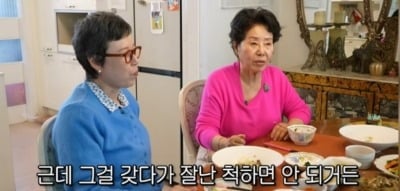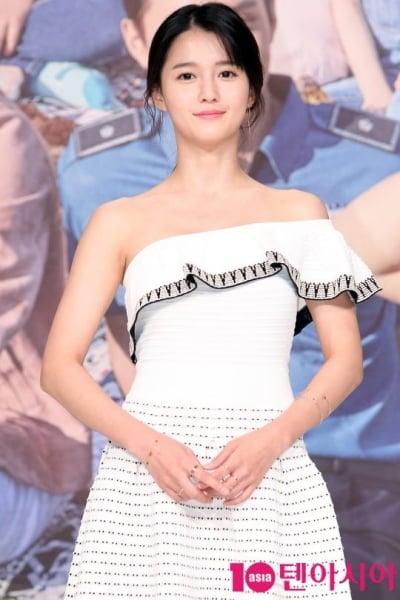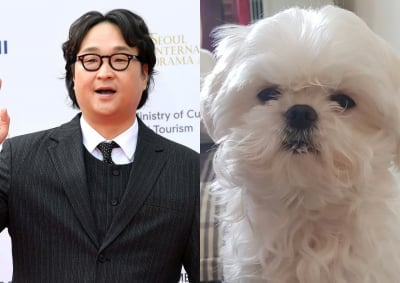TV
'Ahn Hyun-mo's older sister' Ahn In-mo "If it were me, I would have run away, Lee Young-ae brava!"
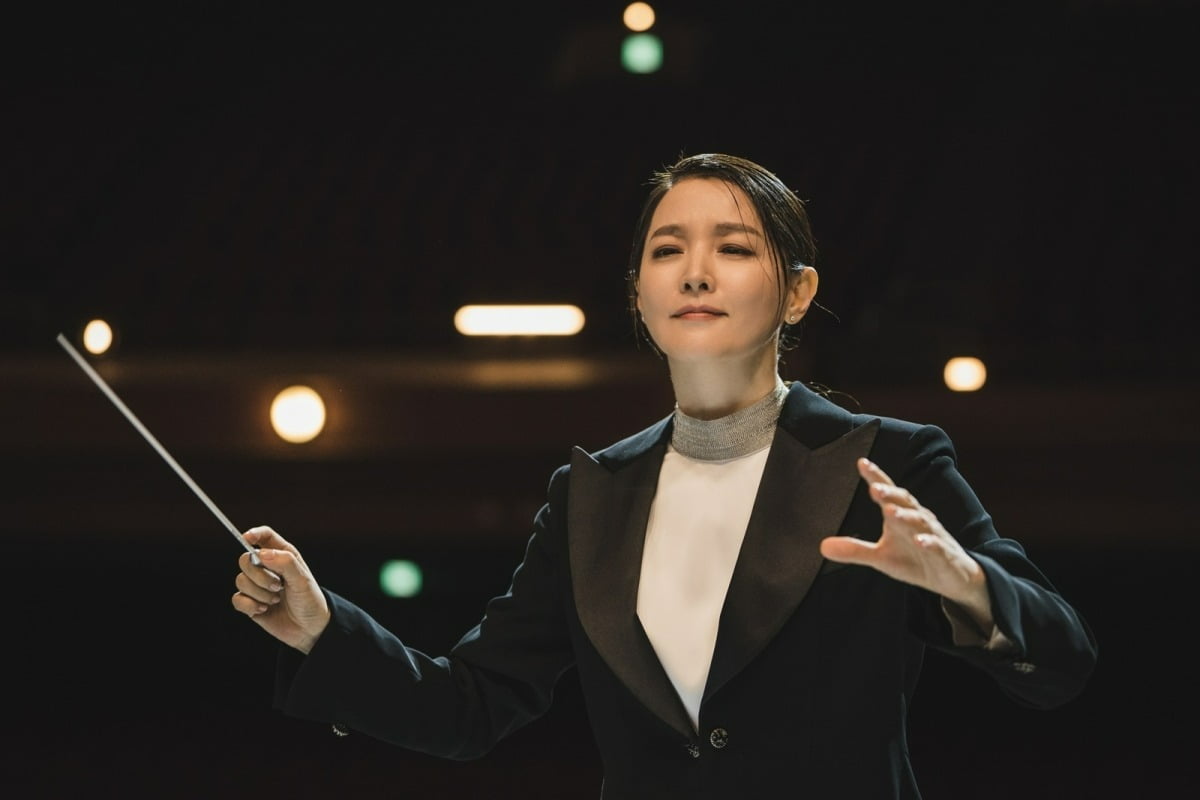
Lee Young-ae, who returned to the role of Maestra Cha Se-eum, one of only 5% of female conductors in the world, in the tvN Saturday-Sunday drama 'Maestra', once again showed her unrivaled presence. Additionally, conductor Jinsol and pianist Inmo An, both active female musicians in the classical music world, are providing active support, attracting attention.
First, Jinsol, a female conductor like Cha Se-eum in the play, said, “When I was young, it was a world where it was difficult for women to dare to dream that they could become conductors. I think the population of female conductors did not increase because women who wanted to learn conducting gave up their dreams.” “He said. This predicts not only Cha Se-eum's rarity as a figure representing only 5% of female conductors in the world, but also that the process for her to be recognized in the industry was not smooth.
Regarding the conductor Cha Se-eum portrayed by Lee Young-ae, Jinsol said, “She was very good at acting as a lonely conductor who is strong and cool, but also full of worries that she can’t tell anyone.” He added, “With the addition of the conducting practice she practiced for a long time, she has a wonderful appearance worthy of the word ‘maestra.’ He was full of praise, saying, “You expressed it very well.”
Ahn In-mo, a female musician who is active as a pianist, classical commentator, and writer, also said, “Conducting is difficult even if you just follow it,” and said that she was impressed by Lee Young-ae’s performance on the podium as ‘Maestra.’ “It would not have been easy to use not only body movements but also facial expressions to lead with moderation and gentleness, but he naturally pulled off the parts that were quite difficult in my eyes. “I wanted to shout Brava! at Lee Young-ae’s conducting performance,” he added, conveying the depth of emotion he felt at that time.
He went on to explain, “A good performance depends more than 80% on the conductor’s capabilities. The conductor must not only stand tall in front of the members and lead the orchestra, but also guide the audience to focus on their appreciation.” From that perspective, Ahn In-mo happily conducted the Radetzky March as an encore in the scene of Cha Se-eum's outdoor performance, eliciting applause from the audience and commenting that it was good to see the sense of accomplishment that he had finally accomplished the first performance.
Jinsol also said, “The strong personality of Cha Se-eum, who is generally portrayed as a sensitive genius, was revealed. However, when the orchestra faced difficulties, I was able to see the humane side of a leader who sacrificed himself, took the lead in finding alternatives, led members to work together to overcome them, and conveyed emotion to the audience.” It was a part where you could feel that Lee Young-ae's three-dimensional expressive ability, going back and forth between the genius maestra and the human Cha Se-eum, truly led to immersion.
In this way, Lee Young-ae's 'Chamae', who transformed into a conductor, is attracting attention by addressing the world of female musicians that has been hidden so far. Expectations are also focused on the performance that Lee Young-ae, who stands on the podium as Maestra, will perform.
‘Maestra’ airs every Saturday and Sunday at 9:20 PM.
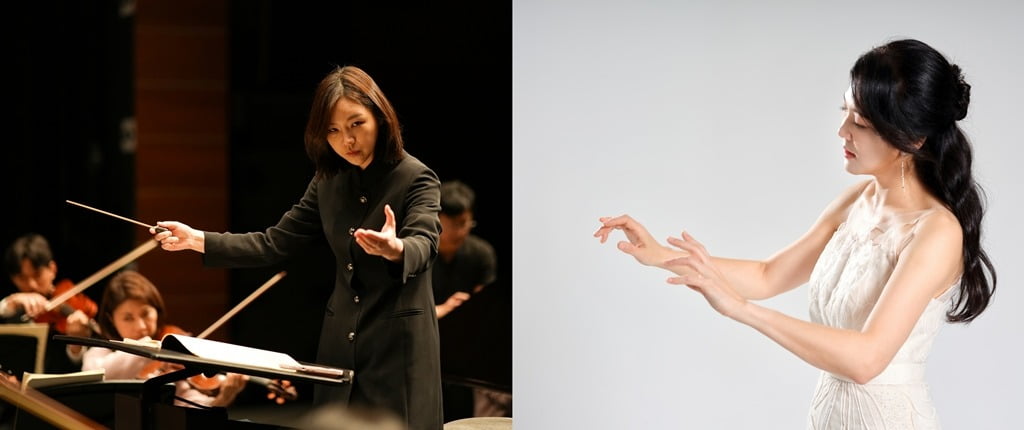
Jinsol: I am conductor Jinsol, a challenging conductor in the classical music world. I taught actress Lee Young-ae on tvN's 'Maestra' and participated as a teacher studying and exploring musicians together.
Inmo Ahn: Hello. My name is Inmo Ahn, and I am a pianist, classical commentator, and writer. I host the ‘I Want to Know Classics’ broadcast on YouTube and podcasts to convey the beauty of classical music to many people. It is an honor to first see the work of actress Lee Young-ae, whom I always like, and to respond to her through this interview. I really enjoyed the drama. I hope many people will fall in love with the charm of the drama ‘Maestra’.
Q 2. What do you think a conductor is to a performer?
Jinsol: There is a saying that a conductor is either a star or an outcast. Conversely, it can also be said that there is no middle ground. Even if he was a star loved by everyone, he could at any time become an outcast who is shunned by performers. Conversely, for example, if the conductor steps in to solve administrative problems or group management problems that the performers were experiencing, he may suddenly be considered a hero. When I actually talk to performers, there are conductors I really want to play with or have great memories of playing with, so I want to meet them again, and there are conductors I don't know much about musically, but I want to follow them on a human level, and on the other hand, there are also conductors I have no reason to dislike. It is said that there are conductors who are strangely uninteresting even though there is nothing at all. To put it boldly, there are times when I think that a conductor as a strong leader rather than a conductor as a friend would be more suitable for our country's orchestra culture, and I think Se-eum plays that role in the play.
Inmo Ahn: The most common question I asked while interviewing artists and conductors was “Conductor or collaborating artist?” In theory, when performing a concerto, the conductor represents the orchestra and plays the role of drawing the collaborating artists into the orchestra. As the intermediary between the orchestra and the performing artists, the conductor must convey the personality of the orchestra, the composer's musical style, and the characteristics of the work he or she interprets to the accompanying artists. The individuality of the collaborating artist and his/her interpretation of the style must also be fully accepted and incorporated into the orchestra's music. Although the conductor clearly plays the role of a middleman, in reality, conflicts are bound to occur in the process. It often happens that the conductor and the collaborating artist insist on each other's music, and then the collaborating artist leaves, saying he can't perform. People often joke that they follow the music of the more famous conductor or collaborating artist. I believe that if you can convince your own music, you can surpass the age or musical experience of the conductor or collaborating artist. Still, from a pianist's perspective, I think a good conductor is one who listens carefully to the music of the collaborating artists.
Q 3. In the play, Cha Se-eum described the stage as a battlefield. What do you think of this statement?
Jinsol: The stage is a battlefield. I think that’s true to some extent. Although it is a metaphorical way of speaking, I think it is a line that well explains reality. The performance itself is not necessarily a war or a battle, but rather a harsh environment that must be experienced countless times in order to stay on that stage. I think Seum, who has experienced many of the dark sides that inevitably exist in the music world, expressed it well in one word. From the stage of planning the performance, going through the difficult middle stages, wrestling with the members, rehearsing hard, and performing on stage like a war through such processes, I am filled with endless emotions. All of this is a theater where I look at the harmony between myself and the performers, and further look at music and art, and at the same time, it is a theater where I show my artistic world to everyone.
Ahn In-mo: The Cha Se-eum I saw had a passion for the stage that was just as passionate as his passion for music. She felt a sense of identity in the sight of herself holding the baton, and only when she stood on the podium did she seem to be able to fulfill her unfulfilled dream of becoming a violinist. For her, the performance stage seems like a battlefield. Moreover, I think Cha Se-eum felt that way even more since he is a permanent conductor under contract with the Han River Philharmonic. In reality, the place to set the stage is a battlefield. If you think about the classical music market from a business perspective, it will be sharp in various issues such as ticket power and performance guarantees. Even as a performer, I think it would be impossible to stand on stage thinking purely about music. When you run an orchestra, compete for the position of chief conductor, or negotiate salary, you get the feeling that the stage is a fierce place, like a battlefield, where some people survive and others do not. What is the stage to me? That's a very difficult question. In this battlefield-like performance market, the stage is still a place for me to return to innocence and meet the real me.
Q 4. What do you think is the most important thing in determining the best orchestra (or stage)?
Jinsol: Many elements must be met to become the best orchestra, including great members, a great conductor, a great administrative team, great ideas and planning, and a great sponsor, but I think the most important of them are a great conductor and a great concertmaster.
Ahn In-mo: Ultimately, the best orchestra is something that the audience will judge on stage. The audience judges the orchestra based on the quality of the performance itself, which is created by the performance program and the conductor's capabilities. In orchestral performances, there is an unspoken framework of an overture, a concerto, a collaborating artist, and a symphony in the first performance, but these days, there is a growing trend of programs that boldly break that rule. Expectations for collaborating artists can determine a good performance, but a good performance is also determined by more than 80% of the conductor's capabilities. Even if the skills of each orchestra member are lacking, if the energy brought out by the conductor can create completely different music and the audience can feel that passion, it can be a good enough performance. Meanwhile, only if communication within the orchestra is smooth and the administrative part is flexible, the members will be happy and perform well. An important line also appeared in ‘Maestra’. The concertmaster plays an important role in representing the members and must communicate well with the conductor. The concertmaster must have not only playing skills but also leadership and communication skills. Since the orchestra is also a small society, communication and cooperation are most important. I believe that the best orchestra can meet the audience with good performances when the three beats between the members, conductor, and movement are well matched.
Q 5. What did you think of Lee Young-ae’s performance as a conductor?
Jinsol: Everyone says there is a common image that comes to mind when they think of “Lee Young-ae.” That's because you're so famous. Since you have built up an excellent filmography, including A Woman Like Oxygen, Dae Jang Geum, and Lady Vengeance, the image of a strong conductor may not match well. However, this time, she practiced and acted so hard that I wondered if she would add another representative role to Lee Young-ae's representative work and representative role. I think he did an excellent job of portraying a lonely conductor who is strong and cool, yet infinitely sensitive and full of worries that he cannot tell anyone, and with the addition of the conducting he practiced over a long period of time, he portrayed a wonderful side worthy of the word maestra very well. Currently, the content that was filmed in the early stages is being broadcast, and it may contain images from when the conductor was just introduced to the audience. I think it will be touching to see him become more mature at the end of the drama.
In-mo Ahn: When an orchestra performs, the audience is most focused on watching the conductor conduct. The conductor must not only lead the orchestra by standing tall in front of the members, but also guide the audience to focus on their appreciation. In episodes 1 and 2, the rehearsal video of Beethoven's Symphony No. 6 'Pastoral' was mainly shown. Actress Lee Young-ae's conducting was good when Yoo Jeong-jae appeared at rehearsal at the end of the first episode and the beginning of the second episode (especially at the beginning of the second episode), and in the outdoor performance scene, she happily conducted the 'Radetzky' march as an encore and the audience applauded. It was nice to see him lead by encouraging people to play, and the sense of accomplishment that he had finally accomplished his first performance was reflected in his conducting.
Q 6. While watching episodes 1 and 2, which scene impressed you the most among Maestra Lee Young-ae’s acting?
Jinsol: I think episodes 1 and 2 will serve to introduce the character of Cha Se-eum to the public. Actress Lee Young-ae impressively showed off her various aspects as a maestra. In most of the scenes, Cha Se-eum was depicted as a sensitive genius and portrayed the stage as a battlefield, which increased immersion through his strong appearance. However, when the group he was in charge of encountered difficulties, he sacrificed himself and took the lead to somehow find an alternative and bring about harmony among the members. They also did a good job of portraying a humane leader who overcomes challenges together and delivers emotion and joy to the audience. In particular, there is a scene where you entertain the audience during an outdoor performance, and you did it very well, which required not only conducting but also showmanship.
In-mo Ahn: I heard that actress Young-ae Lee practiced conducting and violin for more than a year to play the unique job of a female conductor. I haven't seen the scene where he plays the violin yet, but conducting is actually difficult to just follow. Having watched actress Lee Young-ae's other works, I was particularly impressed by her conducting performance as a maestra. Perhaps viewers, like me, will be more interested in that part. I thought it must have been difficult to stand on the podium with both legs. Because this is my first time doing it. It must not have been easy to act with not only body movements but also facial expressions to lead with restraint and gentleness, but in my eyes, he was naturally good at the parts that were quite difficult. Conducting movements, like ballet, require the body to be flexible so that the members can naturally follow the flow of the music. So there was a conductor who learned ballet separately. That's why commanding movements are so difficult. If you had asked me to conduct once, I probably would have run away. Moreover, a conductor conducts not only with his hands and arms, but also with his face and head. Maestro Leonard Bernstein is famous for literally conducting with his face, moving his eyebrows and twitching his lips. Perhaps because I knew that it would be really difficult to perform a conducting role like this, I wanted to shout Brava! to actress Lee Young-ae's conducting performance.
Q 7. As a musician, what are your expectations for the future of ‘Maestra’?
Jinsol: ‘Maestra’ is a work that I put a lot of passion and affection into since I first received the consulting request. I'm so happy that it's a drama based on classical music, but it also tells the life story of a female conductor and that the main character, conductor, is played by actress Lee Young-ae. As a female conductor, I couldn't help but feel truly grateful and excited. It introduces the classical music world and the society in which our musicians live to the public, and at the same time shows that a woman with a job as a conductor lives a life that is not easy at all. However, interesting mysteries also unfold, from the narratives of the characters to the story. There will be many things that you will find new and refreshing. In addition, there are actors who learned new instruments while preparing for 'Maestra', including actress Lee Young-ae, who learned conducting, and they showed great results and progress in a short period of time. In particular, actress Lee Young-ae did not use any doubles in the conducting scenes and did the conducting 100% from memory. Of course, in the case of musical instruments, all actors play them themselves and it is not possible to insert sounds from the actual scene, so there is some disappointment. I am very looking forward to Lee Young-ae's 'Maestra' coming to the small screen, as I think the public will become interested in classical music again through the drama. I hope that people who love dramas, fans of the actors, and many people who love music, as well as those who work in the music industry or are lovers of classical music, will show a lot of love and interest even if the drama comes out a little different from what they expected.
Ahn In-mo: From the beginning, I had expectations that actress Lee Young-ae would show some crazy acting in the future. From the middle of episode 2, it becomes a love triangle centered around Cha Se-eum, and looking at the preview, it seems like it develops into a square relationship. I'm looking forward to the love story between Cha Se-eum and Yoo Jeong-jae, but I'm also looking forward to the music. Actress Lee Young-ae's conducting in the second episode was better than the first, and the story became more interesting from the second episode. Schumann's Symphony appeared at the beginning of the first episode, and Beethoven's Symphony No. 6 was frequently heard. In scenes where you can feel the conflict between the characters, the high notes of the violin make you feel even more tense. As a classical musician, I look forward to the music that will be heard in the drama. I think there will be a variety of classical music as well as orchestral music. It was also fun because the story inside the orchestra was vividly told. Very few pianists like me join the orchestra (there are one or two pianists in the orchestra and the players rarely change). So I think people like me who have never experienced an orchestra will find it interesting.
Taeyuna, Ten Asia Reporter youyou@tenasia.co.kr
